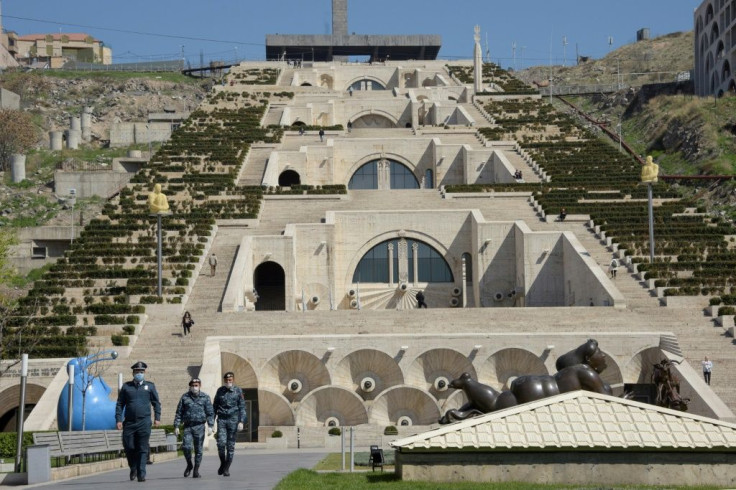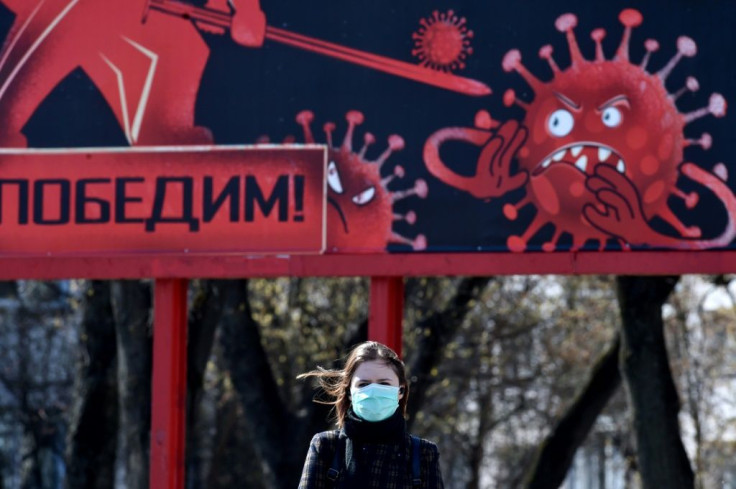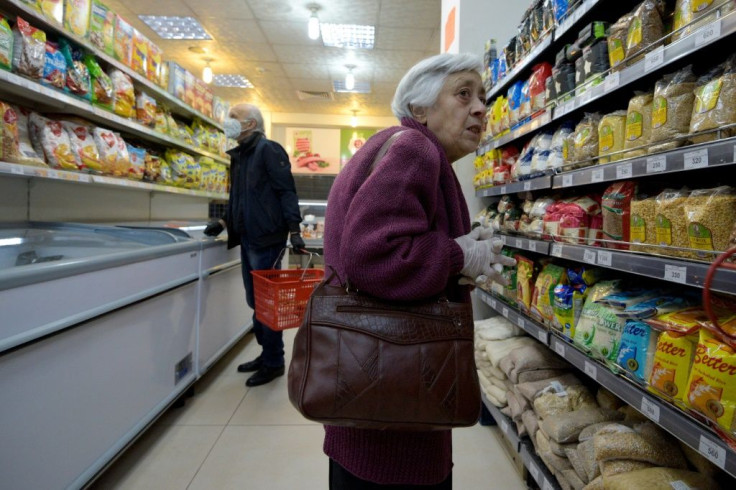Coronavirus Dashes Armenian Hopes For Economic Upturn
Hayk Harutyunyan returned to Armenia full of enthusiasm for a country overhauled in 2018 by a velvet revolution that held out hope for a better future.
Two years later, he is in despair as the coronavirus pandemic shatters the poor ex-Soviet country's shot at an economic revival.
Harutyunyan, who left Armenia after the collapse of the Soviet Union, said a lockdown aimed at stemming the virus' spread has brought businesses to the edge of a cliff.
"We were forced to cut production by 90 percent. We couldn't have imagined such a nightmare was possible," he said in reference to the chocolate business he started.

Armenia, which has reported 1,159 COVID-19 cases and 18 deaths, declared a state of emergency on March 16 and imposed a quarantine that has paralysed the economy.
The measures were extended this week until May 14, with only a few companies allowed to operate.
Harutyunyan and his family were among hundreds of thousands who left Armenia in the 1990s when the newly independent country plunged into political turmoil and economic crisis.

They lived in Argentina for nearly three decades until peaceful pro-democracy protests led by Nikol Pashinyan prompted them to return.
Harutyunyan, 42, followed the demonstrations closely and after the ouster of longtime leader Serzh Sargsyan "packed the trunks and returned home," he told AFP.
He opened his chocolate business with another ex-emigre in the outskirts of Yerevan, one of many successful new businesses that have sprung up in the past two years.
Harutyunyan said he was able to succeed thanks to reforms introduced after Pashinyan became prime minister.
The entrepreneur praised efforts to kick start the economy and support small businesses while sidelining corrupt oligarchs and monopolies.

"But now we all are in limbo," he said. "Uncertainty is the worst thing for businesses."
Prior to the pandemic, Armenia had the fastest-growing economy in the Caucasus, outpacing oil-rich Azerbaijan and Western-backed Georgia.
In 2019, business activity expanded by 7.6 percent according to World Bank data.
In the last two years, the poverty rate fell by 2.2 percentage points to a record low of 23.5 percent, 87,000 new jobs were created and major infrastructure projects were launched.
Credit rating agencies Fitch and Moody's raised Armenia's sovereign debt rating by a notch last year.
But last week, Armenia's central bank slashed its 2020 growth forecast to 0.7 percent from 4.5 percent.
All sectors of the economy would suffer, the bank said, especially tourism and construction.
Imports are expected to fall by up to 11 percent, exports by up to seven percent, and the bank foresees a significant drop in remittances from workers abroad.
In March, the government came up with an economic stimulus package worth $303 million (277 million euros), offering enterprises direct financial aid and a three-month tax holiday among other measures.
Brought to power by a velvet revolution, Prime Minister Pashinyan says the country now needs another uprising to stay on track.
"We used to talk about an economic growth of seven or eight percent, but let's now forget those figures and launch an economic revolution," he told a cabinet meeting.
Pashinyan said Armenia needed a plan not just for economic "survival", but also for development despite the pandemic, and warned that authorities would have to "follow this agenda even in the most critical situations."
© Copyright AFP 2024. All rights reserved.




















